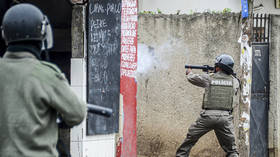Global banks lead the way on managing risks
The Russian operations of global banks generated almost twice the return on assets of domestic banks in the first quarter of this year, with experts pointing to asset quality and risk management.
The central bank of Russia found that 32% of total bank profits went to foreign banks during the first months this year – almost three times their share in terms of assets.
Experts say they are also more conservative than their domestic rivals when it comes to lending.
Much of that depends on risk management says Philippe Delpal, Head of BNP Paribas Vostok
“Risks management is all about technology, scoring system for individual, risk analysis for corporate, building risk averse structures – all these things can be a little bit better managed by European banks compared to Russian banks.”
The investment decisions of Russia’s large state-owned banks are more likely to be directed by government. This may result in more risky loans according to Yaroslav Sovgira, Senior Credit Officer at Moody’s rating agency.
“State owned banks will have to deal with the consequences of not so good asset quality. Because certain loans they will extend were not necessarily made on commercial terms, or would not necessarily be made to companies that they would want to lend to themselves, had it not been for some government request.”
But more than 15% of borrowers expected to run into trouble this year. Many foreign and domestic banks may need to recapitalize. Russia’s state-owned banks have government backing and foreign ones can rely on parent companies. But private banks are vulnerable.
The central bank’s desire to consolidate the market and the State’s decision to fund mostly state-owned banks – may be the death knell for much of the private sector.












